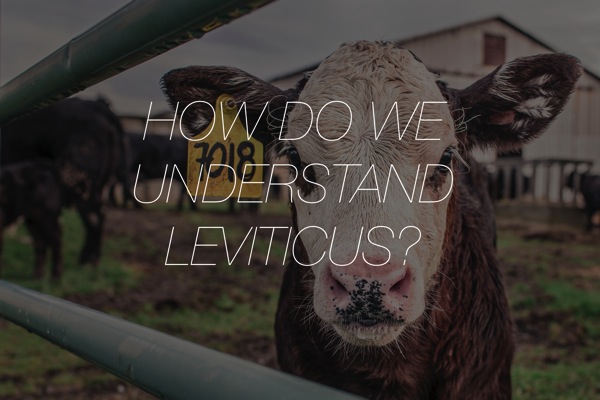 Why do Christians pick and choose which laws to follow in Leviticus? How can someone wholeheartedly affirm one passage that says declares one sin an abomination and then flat out ignore another that forbids eating shellfish.
Why do Christians pick and choose which laws to follow in Leviticus? How can someone wholeheartedly affirm one passage that says declares one sin an abomination and then flat out ignore another that forbids eating shellfish.
One of the misconceptions in understanding how to read the Bible is that people often simply say, “I read the Bible literally.” That’s not true, even by the people who claim it. Most of the people who might say something like that actually don’t literally believe that the poetic language of Psalms should be taken literally. Or when Jesus claims “I am the gate,” believes that Jesus is literally a fence that opens and closes.
A better description for the proper way to read the Bible is: read the Bible as it was literally intended to be read. This means that some books are intended to be read as history, others are intended to be read as poetry, others as apocalyptic and so on. When we read the bible we have to consider, who wrote the book and what was the author’s intention behind what we read.
So how’s this translate to the book of Leviticus?
The book of Leviticus is a book full of laws. And as we read the book of Leviticus it is important to understand how we should understand the book we are reading. Because the book is full of so many laws we have to consider, should we be following these laws? And if not, why don’t we follow them?
When you read the book of Leviticus you cannot automatically assume that every law you read still applies today.
But at the same time you cannot automatically ignore every law that is found in the book of Leiviticus.
You have to discern, is this a law that was for a particular time and place or was it timeless?
The 3 Types of Laws in Leviticus
1) Ceremonial
The ceremonial law was given to the nation of Israel for a particular purpose. These are the laws that were given to the nation of Israel for the purpose of separating them from their Gentile neighbors. These laws are for a specific nation, at a specific time, and for a specific purpose.
And so for the sake of separating Israelites from the Gentiles, you will read about laws like dietary regulations (don’t eat shell fish) and other regulations of cleanliness. These laws are not meant for all people or all times.
2) Civil
The civil law, like the ceremonial law, was given to the nation of Israel in their particular culture. The civil law had a different purpose than the ceremonial, but like the ceremonial it was not meant for all people or all times.
The civil laws were the laws given to the nation of Israel for managing the civil affairs of the people. It gave laws that suggested how to run business, punishment for crimes, and even the treatment of slaves. These laws do not apply to us in our culture.
3) Moral
The moral law is unlike the other 2 types in that the moral law is not to a particular culture or for a particular time period. The moral law can also be described as the natural law. This isn’t because it is natural to obey the law, but because it is the way God created the natural world to function.
The moral law is timeless. It exists before, during, and after the culture in which it was given.
For example, murder. When did murder become a sin? When Cain killed Abel, there was no commandment against murder. But it was still wrong.
Why? How can something be a law without having been given as a law? Murder, I would suggest, is a part of the moral law. It existed even before the giving of the ten commandments and is still important in our day and age.
This is why we often place such high importance on the Ten Commandments as Christians. It’s not because the list of 10 is more important because it’s from the book of Exodus instead of Leivitucs. It’s simply because it is the best summary of the moral law. These are laws that are timeless and that we should hold dearly.
And so with laws in Leviticus, we must consider what kind of law is this?
